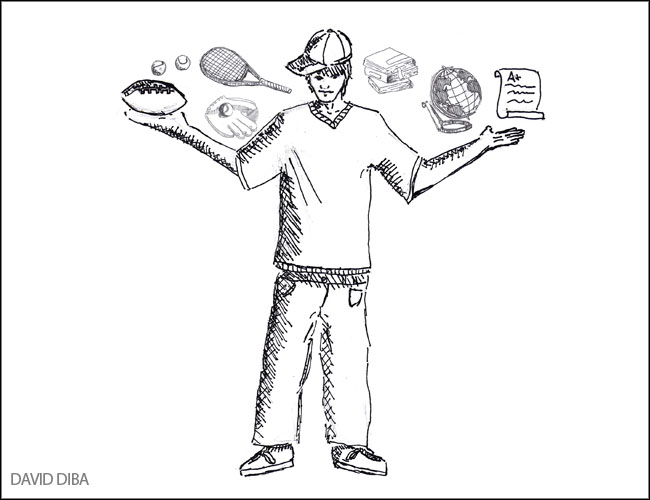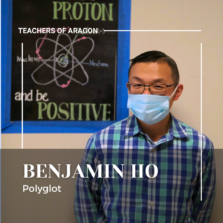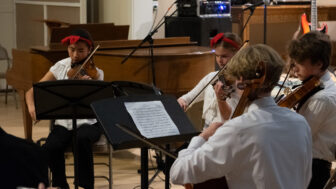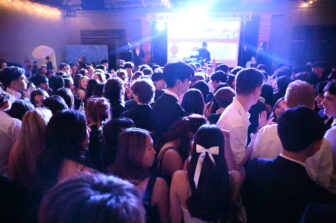
For many high school students today, a simple to-do list won’t get the organizational job done. In fact, for a student who has more than a few daily commitments at school, the list would be overwhelming.
It is a well-known fact that colleges stress the importance of balancing school life. As a result, many students strive to perform well in school as well as extracurricular activities such as sports. At Aragon, however, students have managed to turn their sports commitments and the resulting pressure into something beneficial rather than sacrificial.
Freshman Lisa Leung’s volleyball practices typically last around two hours, and she goes to sleep around midnight. “I don’t think I stay up late and lose sleep because of volleyball. It’s because of other things like homework,” she says. For many students, the time required for a dedicated sports team is worth the time lost for sleeping.
Sophomore Victoria Sun recently played on the varsity girls’ tennis team this fall sports season. Sun’s motivation to play well in tennis parallels her motivation to get good grades in school. “If I can win a tennis match against a tough player,” she says, “I know I can study better and ace that test. [Tennis] really boosted my self-esteem in school.”
Junior Kathryn Dewitt describes similar benefits she has gained from participating in cross country. “In freshman year I couldn’t do a sport because I had an injured foot, so when I came home I was really lazy and I’d end up doing homework way after dinner,” she says. “But when I did cross country and track I learned how to manage my time better. My academic performance actually went up,” she adds.
Linwei Ye is a junior on the varsity cheerleading squad, which requires year round commitment due to football games and rallies for school events. Ye’s commitment to cheerleading has gained her many friends over the years. “We’re really close and we fool around a lot, like a family,” she says.
Senior Allison Lim juggles three commitments this year. While she attends classes and plays soccer for the varsity girls’ soccer team, she also works on the weekends. Lim chooses to play soccer even though it is a time-consuming sport. “Soccer keeps me more focused at school because it keeps me prioritized,” she explains.
As a senior, Lim has had to make one other commitment: turning in her college applications. “It’s very demanding being a senior…but I was actually able to finish my apps earlier because soccer made me manage my time better.”
In the past, student participation in school and sports was definitely encouraged in a different way in the school system. Norma Lopez, the 12th grade advisor, comments, “When I first started working here, kids in athletics were given PE credits when they participated in athletics. Now, there’s more pressure put on the student because they have to do PE and athletics. I think it’s good that they only have to do two years [of PE], though.”
Steve Allekotte, one of Aragon’s counselors, has been at Aragon for about two decades. He says, “It sure seems like there’s a greater participation in sports each year. It’s also not just sports, but music and drama, too.”
As a counselor who has seen many students over time, Allekotte knows that balance between school and extracurricular activities is highly beneficial for the student. “They’re the most disciplined and the most involved, probably because they want to have the whole high school experience,” he comments. “Kids involved know they have great time management skills. They’re able to figure it out on their own.”
Annette Gennaro, a PE teacher and a basketball coach, recognizes the pressure put upon students participating in sports. “Ever since seventh period was initiated it has been harder for [students]. Before, they could start practice at 2:30 p.m., but now they’re put back an hour because practice starts at 3:30 p.m.”
However, despite that stolen hour of time, Gennaro stresses the importance of striving for success in both school and sports. “Being athletic clears [students’] minds and gives them the outlet all kids need. It also helps them socially, and allows them to interact. It gives them determination, lets them work hard, and establishes teamwork, things they can’t exactly do in a classroom.”
Contrary to common assumptions, extracurricular activities at Aragon are not obstacles that hinder a student’s success in school. In reality, they help students learn what lies in between the lessons of teachers—how to manage time wisely, how to make great friends, and how to gain confidence in achieving a certain goal.
“The balance fulfills a person,” Gennaro finishes. “It makes a person well-rounded.”





